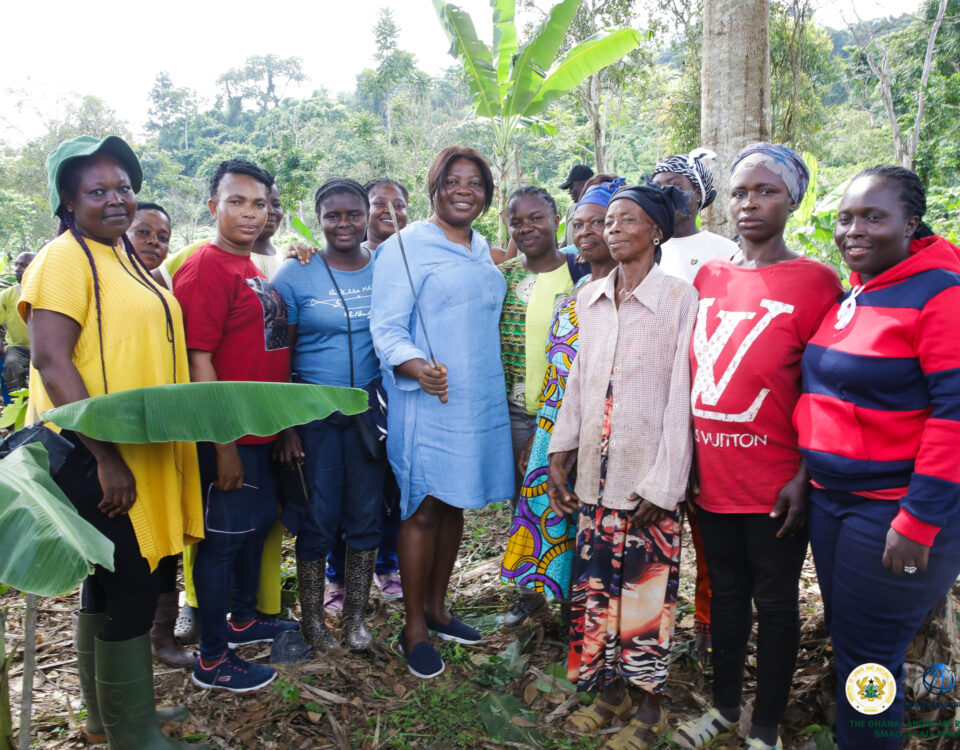
EPA Conducts Capacity Building Workshop to Address Institutional Gender Policies and Practices
October 5, 2023
Ghana Landscape Restoration and Small Scale-Mining Project: Farmers Advised to Adopt to Sustainable Practices
November 24, 2023GLRSSMP Holds a Second Regional Learning Workshop with Stakeholders in the Four Northern Regions
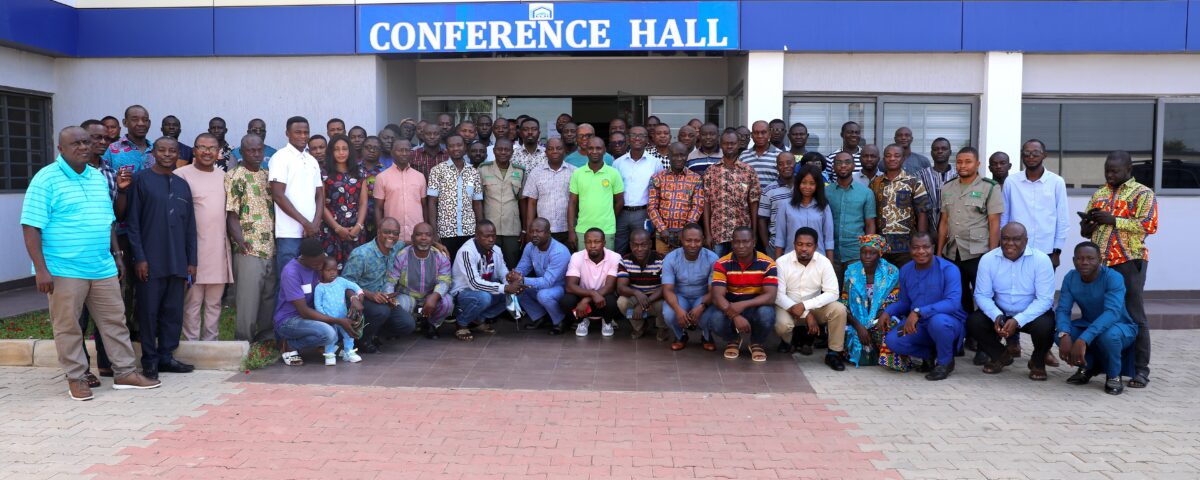
A two-day regional workshop on the progress of the Ghana Landscape Restoration and Small-Scale Mining Project (GLRSSMP) has been held for stakeholders in the four northern regions of the country.
The GLRSSMP, a six-year initiative being implemented by the Environmental Protection Agency (EPA) and the Ministry of Lands and Natural Resources (MLNR), with funding support from the World Bank aimed at promoting sustainable landscape restoration and responsible small-scale mining practices in selected districts in the Northern and Cocoa Forest Landscape of Ghana.
The event held in Bolgatanga in the Upper East Region brought together implementing partners and beneficiaries to engage in discussions on the challenges and progress of the project since its inception two (2) years ago and its way forward.
The development will in turn contribute to improved sustainable land and water management practices aimed at reducing land degradation and enhancing maintenance of biodiversity in selected micro-watershed and to strengthen spatial planning for identification of linked watershed investment in the Northern Savannah Zone of Ghana.
Participants included representatives from EPA, the Ministry of Food and Agriculture (MoFA), the Forestry Commission (Wildlife Division and the Forestry Service Division), and farmers from the beneficiary districts in the project area.
Speaking at the opening of the workshop last Wednesday (November 15), the Project Coordinator of the GLRSSMP, Mr. Isaac Charles Acquah Jnr., said “the objective of the GLRSSMP is to strengthen integrated landscape management, formalization of artisanal and small-scale mining and increase benefits to communities in the targeted degraded savannah and cocoa forest areas.”
He explained that the successful implementation of the project will play a vital role in enhancing sustainable national development.
Achievements
Farmers from beneficiary communities praised the Ghana Landscape Restoration and Small-Scale Mining Project for improving the well-being of female farmers by minimising rural-urban migration particularly for "Kayaye" business in hopes of finding employment and improving livelihood.
The project, they said has also improved their skills in areas ranging from enhanced farming technologies to adequate land preparation and fertiliser use.
The farmers added that adopting sustainable agricultural practises has enabled them to produce high-quality compost, decreasing the need for excessive fertilisers.
They further expressed their appreciation for the project's provision of critical resources, such as ploughing services and high-quality seedlings of cowpea, soya, and maize.
The benefits, they said, extend beyond improved agricultural practises and increase in harvests that has provided them with additional income enabling them to invest in their children’s education for a brighter future.
Balili Ajara, a female farmer from Halemboi, stressed on the positive change the project has made in her community and advocated for the expansion of the project to benefit more women across the country.
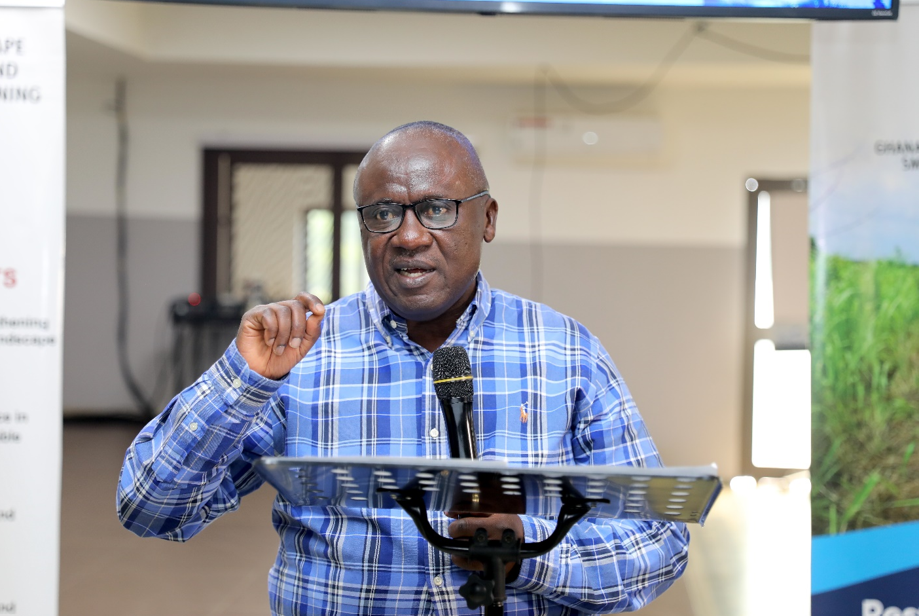
Mr. Isaac Charles Acquah Jnr, Project Coordinator of GLRSSMP in his open remarks
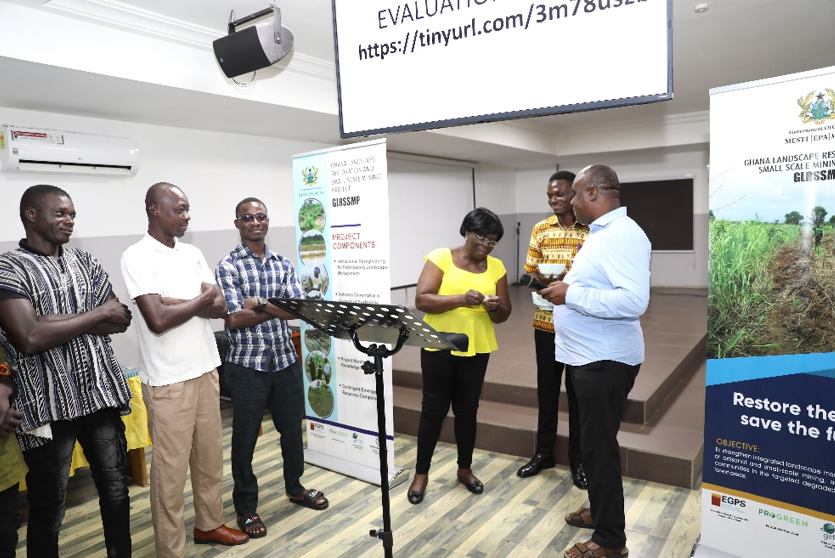
Farmers participating at the workshop.
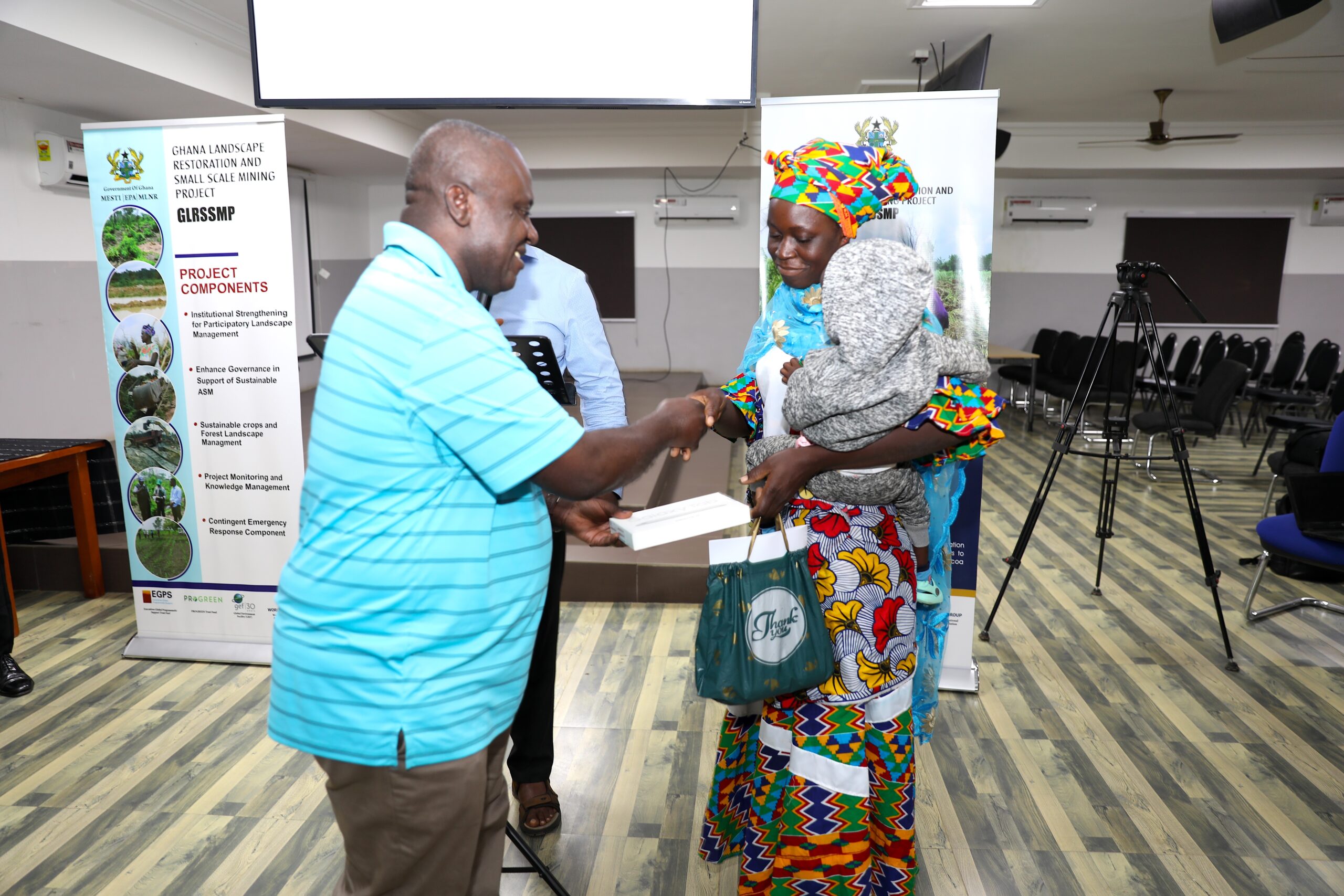
Balili Ajara, a female farmer from Halemboi in the WA East District (One of the lucky winners of the draw).
Key lessons
Highlighting on some impacts on the forest reserve in Buipe Forest District, the District Manager, Mr Atta George said the regular provision of supplies and inputs to local communities has promoted a positive acceptance of the ongoing project.
“The support has not only increased community acceptance but also been critical in allowing the smooth performance of administrative and supervisory functions within the office”.
The project's commitment to ongoing training and strong community engagement has proven beneficial. “This method is producing concrete outcomes over time, as seen by the rising acceptance and support from the local population,” he stated.
He further said the joint effort between the project and beneficiary communities exemplifies an effective strategy that contributes to the initiative's overall success and good impact.
Some beneficiary districts in the four Northern Regions include Talensi, Mampurugu, Sissala West, Tumu, Builsa South Districts among others.
The workshop ended with an exciting draw, where lucky participants received cutting-edge Samsung Tablets.

